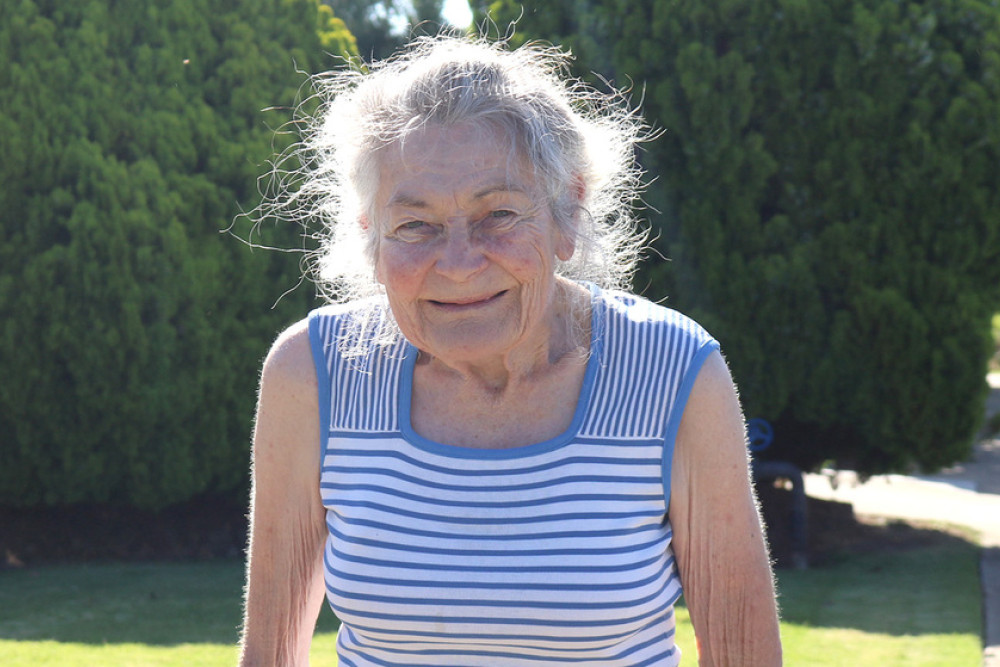Sport
21 December, 2022
Bridging barriers - meet the Oakey resident who was the first woman to play polo in Queensland
Lillian Gibson was an unknowing pioneer when she jumped onto a horse’s back at the Clifton Racecourse in the early 1960s.

If you met Lillian, you wouldn’t know you were meeting a small part of Queensland history.
This lady is unassuming polite, well-spoken, but economical with her words.
She didn’t know that when her father, Jack Gibson, Queensland polo representative, asked her to join in the regular local competition, she was the first woman in Queensland, and possibly Australia to play the ancient sport of polo.
In her time, the local competition was played at Clifton Racecourse with several families, some of whom were closely related.
Lillian took to the game quickly, and was soon accepted by the community, many of whom were her second and third cousins..
She says players were given a handicap ranking between 1 and 5 (with newcomers being ranked 0), and assigned randomly into teams.
When asked what brought her back for a second week, she answered simply.
“It was fun.”
After playing the game for three years in Clifton, Lillian’s family moved to Cross Hill near Biddeston where polo wasn’t played.
Although she moved on from polo after three years, she had left a mark.
When a woman in Goondiwindi took up the game in the late 1960s, she was informed that she was the second female to take up the sport.
“She later moved to Brisbane, and that was how
I found out because I read the article,” Lillian said.
Although she would have cut an unusual sight at the time, she says she didn’t encounter any prejudice based on her gender.
“They were good,” she said.
“I don’t think any woman had even tried to ask (to play) before.
“It was considered too rough.”
After moving into the Oakey district, her involvement with horses would evolve into a career as a horse trainer jockey.
At the Oakey Racecourse, she would ride warm-up laps for hundreds of horses in readiness for their races.
Two famous horses she remembers training in Oakey were Velvet and Steel, which won 12 races with her as a trainer, and Hoodoo Voodoo, which won races in Toowoomba.
After leaving training, Lillian continued to work closely with horses at her property near the racecourse, looking after them for ‘spells’ of rest, where they would recuperate in between races.
Local resident John Burns, a veteran polo player of multiple decades on the Downs, began his career when Lillian was a well established figure in the polo scene at Clifton.
Mr Burns says he remembers Lillian well from his early years involved with the sport.
“She’d been brought up on a farm so she was very comfortable with the game,” he said.
“Hell of a nice person but tough as nails on the field.”
The Downs Polo Club at Clifton is the successor to the club Lillian played for in Clifton.
This year six teams participated in the competition, which still takes place at the Showgrounds in Clifton.
A number of the players who started their careers in Clifton have progressed to playing all over the world with some of the families playing into their third and fourth generations.
Tournaments at the Showgrounds take place in autumn and in winter.
Downs Low Goal, held last year in April, the Downs Shield, held in June, and the Cooke O’Leary, Silvershop, and Sapphire Shield, generally have taken place in July.
Not to be confused with polocrosse, an hybrid game from Australia played on horseback locally in Oakey which originated in Australia, polo originated in ancient Persia and involves teams hitting a round ball with a long-handled mallet towards the opposition’s goal.
Players can switch horses during a match, unlike in polocrosse.


